Get inspired by Craft Scotland's Make It Green series. Hear inspiring stories and tips from Scotland-based makers and initiatives about sustainability and ethical making.
Make It Green is in association with Green Crafts Initiative, a partnership between Craft Scotland and Creative Carbon Scotland. Green Crafts Initiative champions and promotes environmentally sustainable craft practices. Learn how you can join today and take the pledge!
Ben Wilde is a boatbuilder, who has been involved in the craft for over a decade. He is one of the directors of Archipelago Folkschool, a collaborative organisation that works to connect people with craft through short courses like kayak and canoe building. The team also runs bespoke courses for a range of groups including families, communities, clubs and charities.
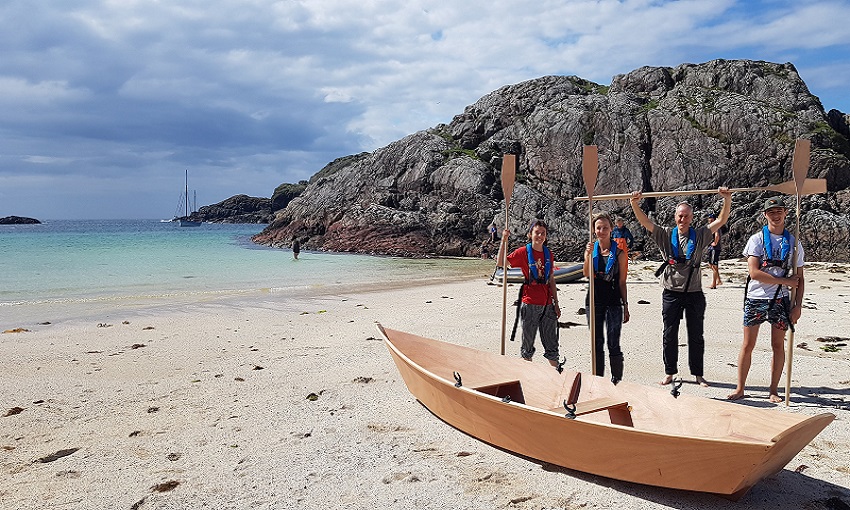
Image: Courtesy of Archipelago Folkschool
Hello Ben. Could you start by telling us a little about your practice and your journey so far?
I'm a traditional boatbuilder by training. I didn't really plan to become a traditional boatbuilder, but I got a degree in linguistics and didn't want to work in an office – I wanted to avoid that world. I ended up going to the Northwest School of Wooden Boatbuilding in the US. I trained there for a year as a boatbuilder and then came back to the UK eventually. I then started working at the GalGael Trust in Glasgow and over the course of my time there, I developed various teaching projects including a major Heritage Lottery Funded project. Alongside the teaching, I was doing various bits and pieces of commercial or commissioned work. Quite quickly after training, I moved into the education space after becoming more interested in teaching rather than working commercially. I worked as a teacher for seven years and ran various projects, eventually leaving to start the Archipelago Folkschool.
We’ve moved away quite a lot from traditional boatbuilding at the Folkschool and our primary activities now relate to our boatbuilding courses. We have complete novices coming in who get to build a boat in a week, and that’s at the core of our activity. We work in what we call contemporary wooden boatbuilding, which involves using timber but using it with modern techniques and modern approaches to building.
How did Archipelago Folkschool come together initially?
We started in 2018, and it was initially set up by me and Ruth Little, who is a dramaturg and writer that I had met years before. We had been trying to explore ideas of creating a space where we could support a connection between arts and crafts, sustainability and local – some quite vague amorphous ideas that we hadn’t ever pinned down into a manifesto. Over the course of many cups of tea, we decided on this idea we wanted to approach. We looked at various concepts, and the Folkschool manifested as the thing that made the most sense.
I was very clear that I didn’t want to run a charity again, having worked for a charity for several years and being aware of the problems of charity fundraising. We really wanted to be more free to do what we wanted and not to have to rely on funding for the organisation’s survival. I really wanted to get away from that business model, and I liked the idea of a social enterprise. Coming at it as a boatbuilder, I wanted to support the craft - it’s very hard to work in that space as boatbuilding is a hard craft to learn, so really, education is the most important. We wanted to leave lots of space for creativity and supporting individuals. Working as a social enterprise means going into work with communities, those who wouldn't normally access craft or something like wooden boatbuilding. This allows us to be really flexible in what we do.
We run courses, and some of our work involves running commercial courses where people are paying a fee to come and join us for a week. Some of our courses require us to get in our van to visit community centres and groups, where we can work with young or disabled people, LGBT youth groups and more. We give them something to work on, a sense of a common purpose and a sense of achievement. It’s not just about explicit craft learning, because you can't do that much clear craft learning in a week. A lot of what we do is about giving people a sense of wellbeing, a sense of self-esteem and satisfaction at the end of the week, at having made this thing that they never thought they could.
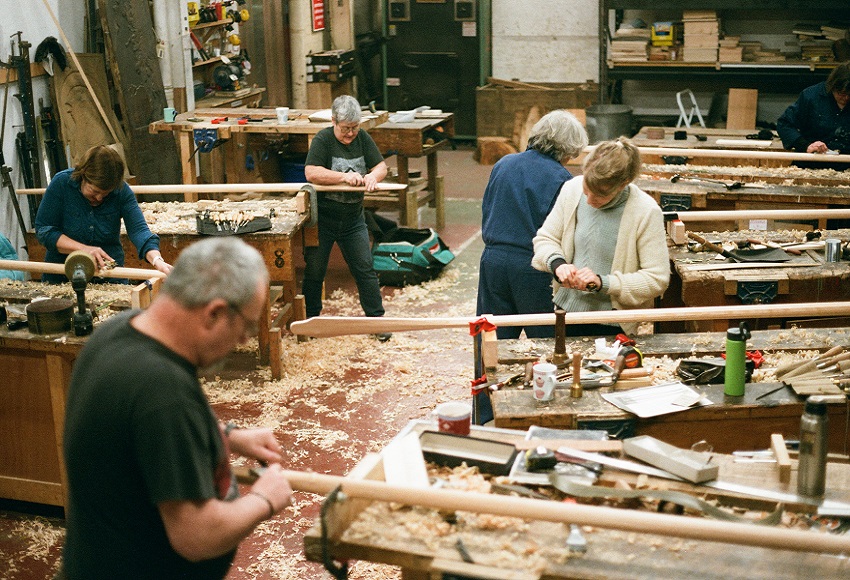
Image: Courtesy of Archipelago Folkschool
Can you talk about some of the projects and courses at Archipelago Folkschool? Why do you think people respond so well to them?
I think one thing that I learned when I first started training, or over the first four or five years of my progress from training to working, is that we’re not very good as a society at giving people permission to make stuff, to make it badly, make mistakes and then figure out how to do it better. A big part of what we do is convincing people that they can do things, and we spend a lot of time convincing people to try things, to learn from their mistakes and to feel okay when they get things wrong.
I think one of my core skills I have developed over the last 15 years of teaching boatbuilding is the ability to fix a huge range of mistakes, to stay calm and level-headed about it and to also be quite cheery about it. I think being able to give people that permission to just try things is what they really respond to, there's that sense of physical achievement; you start out the week thinking that you’re not good at woodwork, you’ve never done it before, you won’t be able to do it. By the end of the week, you get to row or paddle in a boat that you've built. It's somehow more substantial than other things to build, even though it's not a big thing. If you build a chair and it doesn’t work, there’s limited consequences. At worst, you might sit on the floor, but if you build a boat and you get it wrong, it sinks and it can get quite serious! It feels emotionally heavy, and it feels like a really important symbolic thing to build. We have continual feedback where people are astounded that they can achieve this in a week.
What materials do you tend to work with and why are these your preferred materials?
Boatbuilding is very specific in terms of timber usage. If you’re building a wooden boat, you have to be using some of the best timber you can get your hands on for the most part. When we get back into traditional boatbuilding at the Folkschool, we’ll work with lots of materials like solid timber, copper nails and linseed oil. We have to be very fussy about materials, such as the specific species we're using, and even what parts of the tree we use; it's got to be from heartwood from a durable species. Sustainability is one of the big challenges that we have in boatbuilding, because the best boatbuilding wood is often tropical hardwood-based. More and more, we're trying to continually push using native timbers or European timbers as much as is possible.
We only ever buy FSC certified timber, however I'm never fully convinced that it’s good enough as a way of certifying timber. It's hard to be sure what counts as sustainability when you have these complex global supply chains. We can use native timber - and we do, but it's often quite challenging to do so. It’s a huge conversation and something that we’re always trying to do better on. The other material we use a lot of is plywood, which obviously uses timber but is processed and produced, it has the same challenges and again, there isn't really a good alternative. We use FSC only plywood from really good suppliers, but it’s still using tropical hardwoods and we’d prefer to be moving away from that.
The third thing that we use a lot of is epoxy resin and fiberglass, which is basically plastic by another name, derived from crude oil. Essentially, we build plastic boats out of tropical hardwoods. Ideally, we wouldn't be doing that, but if you want someone to have a boat, they're either going to have a plastic boat, or they're going to have a carbon fibre boat, or they're going to build a wooden boat. If they build a wooden boat with us, they're more likely to adapt, and they're more likely to last.
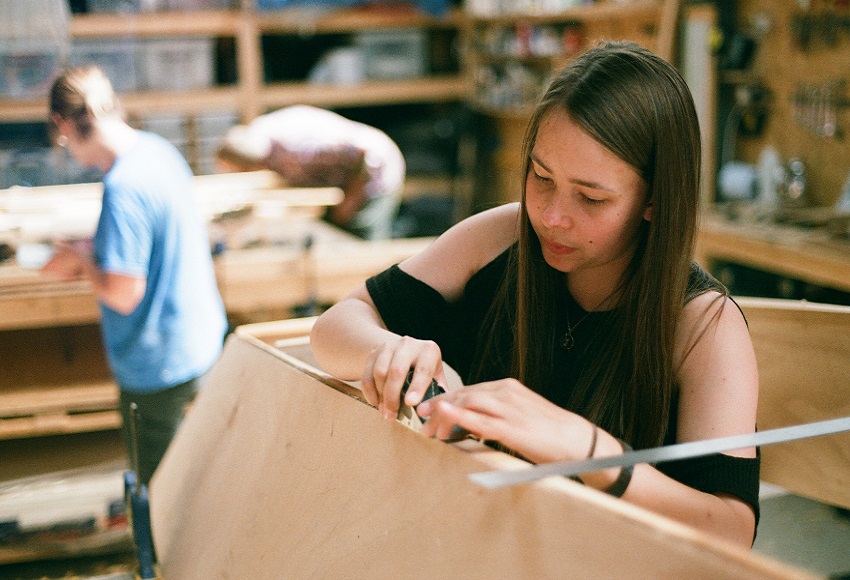
Image: Courtesy of Archipelago Folkschool
Can you tell us about any recent research projects or commissions you have been working on?
The Folkschool’s new workshop is a big thing that we've been working on and I feel as if it’s going to change everything. On Mull next year, we’re going to be putting up a 200 square metre timber workshop with insulation, windows and damp proofing so the tools won't get rusty. All of this sounds quite mundane, but I’m coming from more than a decade of damp, cold sheds so it will be a huge upgrade for me. The building will allow us to do so much more and give us space for all kinds of projects. It’ll also give us a proper store and machine shop for the first time to be able to process timber more efficiently. We'll eventually have our own CNC cutter for plywood which will allow us to use the material more efficiently and do much more in house.
Next year, we'll do a couple of courses. The year after that, we haven't really started planning what we’ll do with the workshop when it's there, but we have lots of ideas. In terms of the business model, we continue to add courses, but we're also trying to think about doing more traditional boatbuilding and bringing in other crafts.
Do you have any advice for other makers who are considering working in a more environmentally sustainable way? And what are your hopes for the future of sustainable craft making?
The one thing that I have done, and that we consistently try to do, is keep pushing on what's possible in terms of trying to find new ways of doing things. My advice is: be willing to change your plans all the time. I guess if you're working in other fields, there might be more flexibility in terms of where the materials come from.
I think we can be really hopeful in general. The more that the customer base is expecting and demanding, the more makers will be looking to meet that need, and most craftspeople that I know working in Scotland want to do that anyway. We all want to work sustainably but it's challenging, part of that is because things become more expensive the more sustainably you work. I think more people are understanding that and meeting that great expense as a result. I'm pretty hopeful that there is room to have really ethical, sustainable craft spaces in Scotland.
The other thing that I feel is often lost in this conversation is that sustainability is not just about material usage, it's about connection with society. The more people are engaged in their own craft making, the more people will know how to make purchases and understand. My own example here is that building a boat is really wasteful, because the shape of a boat is very unusual. If you start off with a plank of wood, some of it will be useless because you have to saw out a curved piece of wood and a flat piece of wood. If you look at a finished boat, you might not understand why it costs so much, so the more that people understand boatbuilding as a process, the more they will be willing to engage with that process and support sustainable craft. That’s a very specific example, but I think it rings true more broadly and in other crafts.
More about Archipelago Folkschool: To learn more about Archipelago Folkschool, view their Twitter and Facebook page, or visit their website at archipelagofolkschool.org.
 Arusa Qureshi is an award-winning writer, editor and speaker with a passion for music, diversity and accessibility within arts and culture. She has written a book about women in UK hip hop called Flip the Script, which is out now via 404 Ink. Her bylines include the Guardian, NME, Clash, Time Out, The Forty-Five and the Scotsman, and she is part of the We Are Here Scotland team, supporting and amplifying the voices of creatives of colour in Scotland.
Arusa Qureshi is an award-winning writer, editor and speaker with a passion for music, diversity and accessibility within arts and culture. She has written a book about women in UK hip hop called Flip the Script, which is out now via 404 Ink. Her bylines include the Guardian, NME, Clash, Time Out, The Forty-Five and the Scotsman, and she is part of the We Are Here Scotland team, supporting and amplifying the voices of creatives of colour in Scotland.
She recently worked as a Researcher on the new BBC Scotland podcast Word Up!, and as a Commissioning Editor for Bella Caledonia, and was formerly Editor of The List, the UK events and entertainment publication based in Edinburgh, Scotland.
Arusa Qureshi / Photographer unknown
Read More
-
Full details→
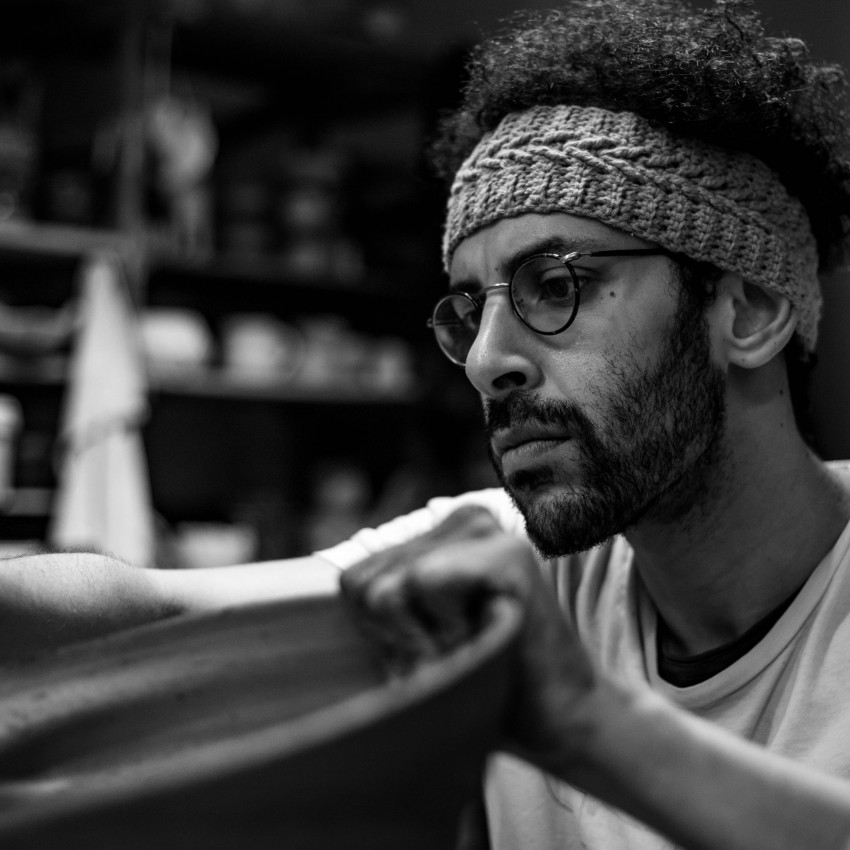
Make Your Own Story Mohamed Tonsy: Connecting Ceramics and Literature through Imagined Futures
In the latest Make Your Own Story, ceramicist Mohamed Tonsy tells us about his uses of literature and ceramics to filter his own biographical history and explore imagined near futures.
25 Nov 2021
-
Full details→
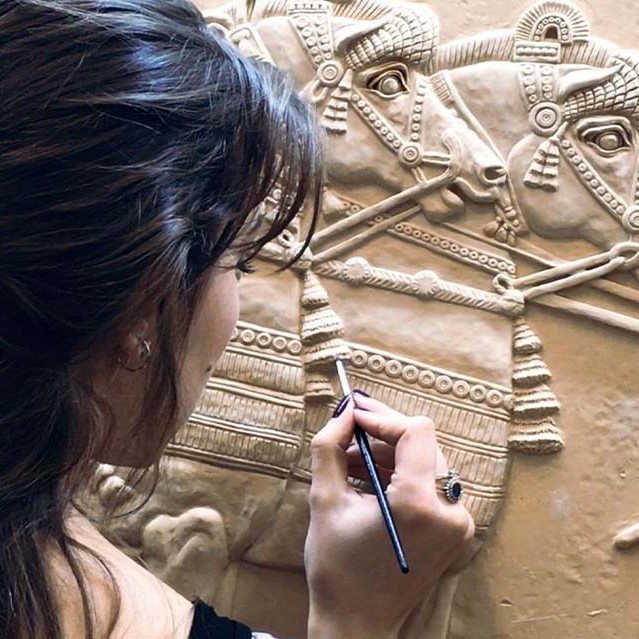
Make It Green Kate Ive: Sculpting and Carving on a Monumental and Minute Scale
In our latest Make It Green interview, award-winning Edinburgh-based artist Kate Ive tells us about creating impactful sculptural works to address the climate crisis.
11 Nov 2021
-
Full details→
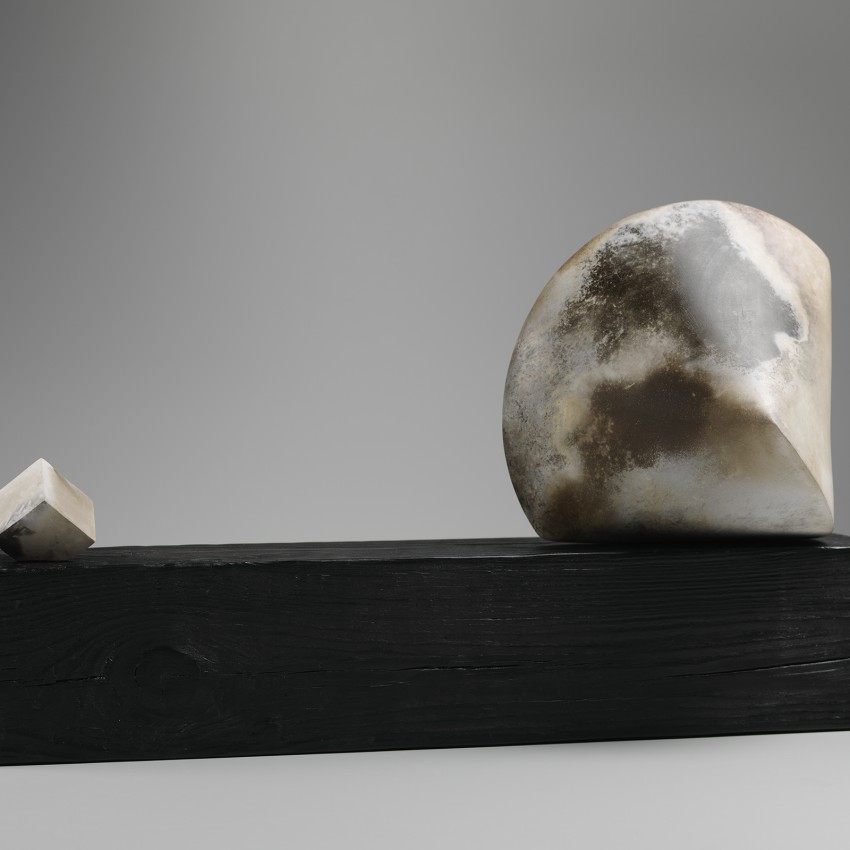
Make It Green Craft at COP26
Thinking about the climate emergency from a craft perspective? Here's a round-up of 7 events taking place during the UN Climate Change Conference COP26. Plus, more sustainable craft resources and links.
5 Nov 2021
-
Full details→
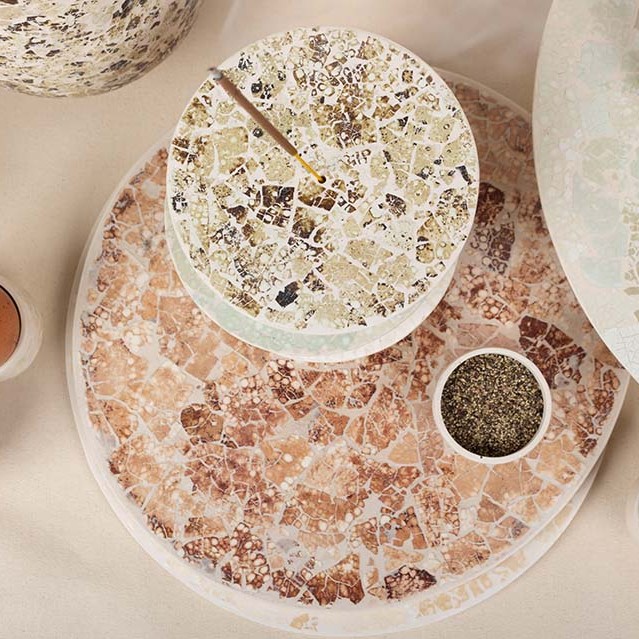
Interview and.ILC melds making & cooking - Jorum Craft Award
Learn about winner of Round 2 of the Jorum Craft Award, Isla Cruickshank, who brings her experiences as a cook into her craft practice.
1 Oct 2021
-
Full details→
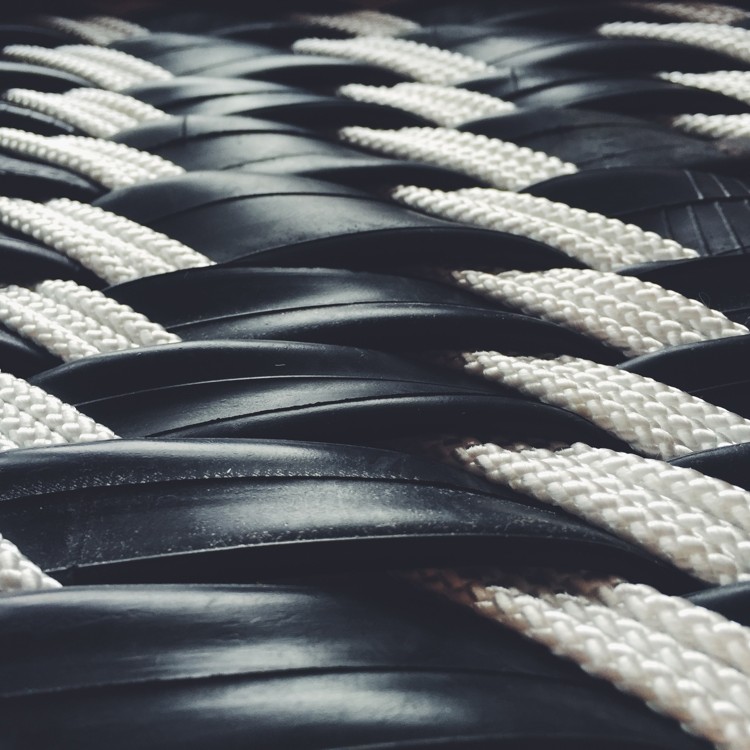
Make It Green A Creative Response to the Environmental Crisis
Being authentically green is good for you, the earth and builds fans. Hear Andy Stirling Robertson's thoughts on going against the grain and wholeheartedly embracing green making.
28 Jun 2016
-
Full details→
![Mohamed Tonsy: Connecting Ceramics and Literature through Imagined Futures]()
Make Your Own Story Mohamed Tonsy: Connecting Ceramics and Literature through Imagined Futures
In the latest Make Your Own Story, ceramicist Mohamed Tonsy tells us about his uses of literature and ceramics to filter his own biographical history and explore imagined near futures.
25 Nov 2021
-
Full details→
![Kate Ive: Sculpting and Carving on a Monumental and Minute Scale]()
Make It Green Kate Ive: Sculpting and Carving on a Monumental and Minute Scale
In our latest Make It Green interview, award-winning Edinburgh-based artist Kate Ive tells us about creating impactful sculptural works to address the climate crisis.
11 Nov 2021
-
Full details→
![Craft at COP26]()
Make It Green Craft at COP26
Thinking about the climate emergency from a craft perspective? Here's a round-up of 7 events taking place during the UN Climate Change Conference COP26. Plus, more sustainable craft resources and links.
5 Nov 2021
-
Full details→
![and.ILC melds making & cooking - Jorum Craft Award]()
Interview and.ILC melds making & cooking - Jorum Craft Award
Learn about winner of Round 2 of the Jorum Craft Award, Isla Cruickshank, who brings her experiences as a cook into her craft practice.
1 Oct 2021
-
Full details→
![A Creative Response to the Environmental Crisis]()
Make It Green A Creative Response to the Environmental Crisis
Being authentically green is good for you, the earth and builds fans. Hear Andy Stirling Robertson's thoughts on going against the grain and wholeheartedly embracing green making.
28 Jun 2016